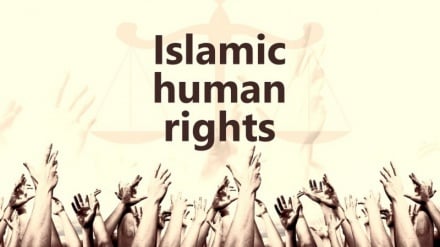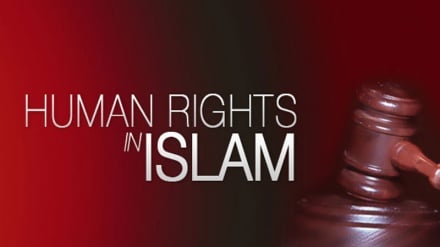Islamic Human Rights (25)
Welcome to the 25th weekly episode of the series Islamic Human Rights. In this episode, we continue to discuss the different viewpoints of the divine religion of Islam and the West on Freedom.
All thinkers accept the concept of freedom. However, the differences of their viewpoints are related to the boundaries of freedom. The dispute among thinkers and philosophers is related to the boundaries that they establish for freedom.
The Western thinkers have expressed their opinions about the limits of freedom. For instance, some of them state that the boundaries of freedom are set by law, and if someone wants to be free he should be freed within the framework of rules and regulations. Moreover, the Western thinkers state that man is free as long as his freedom would not harm the freedom of others.
In practice, no community has absolute freedom and the existence of rules and regulations is necessary for administration and management of mankind. Meanwhile, any law, in its innate nature, restricts a kind of freedom. In the West, law only regulates and administers the community.
Although, in the West they say that freedom is restricted by law, that law in itself is the product of the aspirations and inclinations of individuals. This is because in the West, the law is solely set and approved by lawmakers, and rules and regulations serve their personal and collective interests. Moreover, in the West, the appropriateness of law is not necessarily because of its compatibility with human values. The aspirations and inclinations of the majorities of members of the community lead to establishment of law and the system.
One should realize that this doesn’t reflect the actual nature of these developments. If one studies the problems that the West faces, he will clearly realize that freedom in the West is set, based on the demands of the upper strata of the community, which are the rich and the powerful. Hence, the needs of people are not actually met in the Western communities.
As it was mentioned last week, freedom in the Islamic outlook is tantamount to liberation from the servitude of anyone other than the one and only creator of the world, God Almighty. Meanwhile, what are the boundaries of freedom in the view of Islam?
In Islam, in addition to the outer obstacles that restrict human freedom, such as colonial powers, and oppressors; a series of inner factors have also been specified which limit human freedom. The supporters of freedom in the West campaign against the outer factors which limit human freedom. However, Islam maintains a broader and deeper outlook and takes into consideration another set of hurdles such as some human characteristic traits which push mankind toward inaction and fragility. These hurdles include corruption, and carnal desires. So, in the view of Islam, inner factors can also restrict human freedom. For man to be free, he should not be under the yoke of his carnal desires and lust.
In a broader sense, in Islamic viewpoint, if a nation is not held captive by its feelings, negative traits, corruption, fear, and greed, it would not be dominated by oppressive and domineering powers. This is one of the main differences in the views of Islam and the West in regard to freedom.
Islamic freedom is a divine blessing that has been bestowed on mankind based on monotheism and servitude of man toward God Almighty. This freedom is paired with obligations and responsibilities, and leads mankind toward growth and materialization of all human talents. In Islam, there is a strong bond between life of mankind in the material world and his fate in Hereafter, and all of man’s conducts play an effective role in man’s true prosperity.
The divine religion of Islam has put emphasis on piety, purification of soul, and self-growth, which in fact lead to man’s liberation from the yoke of inner obstacles. Piety prevents man’s deviation from the righteous path and purification of one’s soul enables man to clear oneself from the traces of corruption. If an individual is pious and devout, he has in fact attained true freedom and can emerge victorious in the face of word powers.
Hence, in Islam, freedom is not solely defined as liberation of mankind from the yoke of outer boundaries. In Islamic viewpoint, defeating inner restrictions grants the biggest freedom to mankind.
In Islamic viewpoint, abidance by Islamic rules and regulations about oneself is a divine obligation; the violation of which leads to the punishment of the related violator by God Almighty. This is because in the view of divine religion of Islam, maintenance of one’s personal rights is a must.
Meanwhile, in the West, the boundaries of freedom are set by materialistic interests. In other words, strenuous efforts are made to protect the interests of individuals, even if those interests are wrong and unethical. Education and upbringing are the domains in which freedom of mankind has been emphasized. In the West, the superior know-how are not transferable and transference of technology to developing countries is forbidden, because if these know-how and technologies are transferred, the West would no longer be able to monopolize these technologies, and the materialistic power and domination of world powers would be undermined.
So, freedom in the West maintains illogical boundaries. For instance, in the West, criticism of the Zionist regime of Israel is prohibited and leads to harsh punishments. However, in the West, no boundaries are set on the violation of ethical values and virtues.
MR/MG


